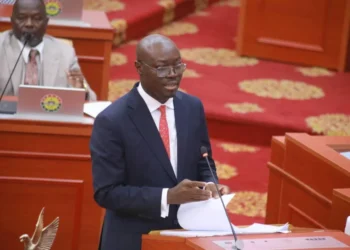The Monetary Policy Committee (MPC) of the Bank of Ghana (BoG) has decided to increase the Monetary Policy Rate by 250 basis points to 24.5 percent.
According to the Committee, it remains committed to re-anchoring inflation expectations and returning to a disinflation path, the main rationale for hiking the rate.
The Bank of Ghana highlighted that recent global developments reflect among others, heightened economic and policy uncertainties, fostered by the strong commitment on the part of advanced economies to decisively tackle inflation.
This, according to BoG, has triggered a wave of monetary policy tightening stance by most central banks across advanced economies and strengthening of the US dollar. Against other major international currencies, the US Dollar has appreciated by some 15 percent, it noted.
Consequently, global financing conditions have tightened further since the start of 2022, with spillovers in the financial markets of emerging markets and developing economies. Driven in large part by these factors, several currencies have weakened against the US dollar, resulting in faster-paced capital flow reversals from emerging and developing economies, including Ghana.
On the fiscal situation, BoG noted that while expenditures have been broadly on target, revenue performance has been below expectations, complicating fiscal policy implementation.
“Financing of the budget so far has predominantly been from the banking sector with the central bank absorbing a larger share. Persistent uncovered auctions and portfolio reversals by non-resident investors continue to pose risks to financing of the budget, resulting in monetization of the budget deficit by the central bank. The Monetary Policy Committee recognizes the fact that the current condition is sub-optimal and will be interim until agreements are reached on an IMF-supported programme.”
Bank of Ghana
IMF program to help re-anchor stability
The Committee assessed that the engagement with IMF has been positive and early conclusion of the programme discussions will help re-anchor stability.
“The outlook for the Ghana Cedi has improved, aided by the recent disbursement of the loan from Afreximbank of US$750 million, the signing of the syndicated Cocoa Loan of US$1.13 billion, and the agreement with gold and oil companies to purchase the repatriated foreign exchange earnings of about US$83.9 million so far, will help stabilize the exchange rate.”
Bank of Ghana
The Central Bank however, warned that inflation remains elevated and the balance of risks is on the upside. Although the forecasts are for monthly inflation to continue to slow down, it pointed out that the risks are on the upside, emanating largely from pass-through effects of the currency depreciation, the recent upward adjustment in utility tariffs, and rising inflation expectations.
Price pressures remained elevated. The latest reading indicated that headline inflation accelerated to 33.9 percent in August 2022, from 31.7 percent in July and 29.8 percent in June. The rise in the August inflation was broad-based, driven by both food and non-food prices.
Food inflation rose to 34.4 percent from 32.3 percent in July, whereas non-food inflation jumped to 33.6 percent from 31.3 percent, over the same comparative period. The upturn in food and non-food inflation was influenced by prices of both local and imported components in the consumer price basket.
The Bank’s core inflation measure, which excludes energy and utility, increased further to 32.6 percent in August, from 30.2 percent in July 2022. Similarly, all the other core measures of inflation rose, reflecting the generalized increase in price levels. The Bank’s latest surveys showed increased inflation expectations across consumers, businesses, and the financial sectors.
READ ALSO: FIFA /Coca-Cola World Ranking: Brazil Maintains Top Spot























